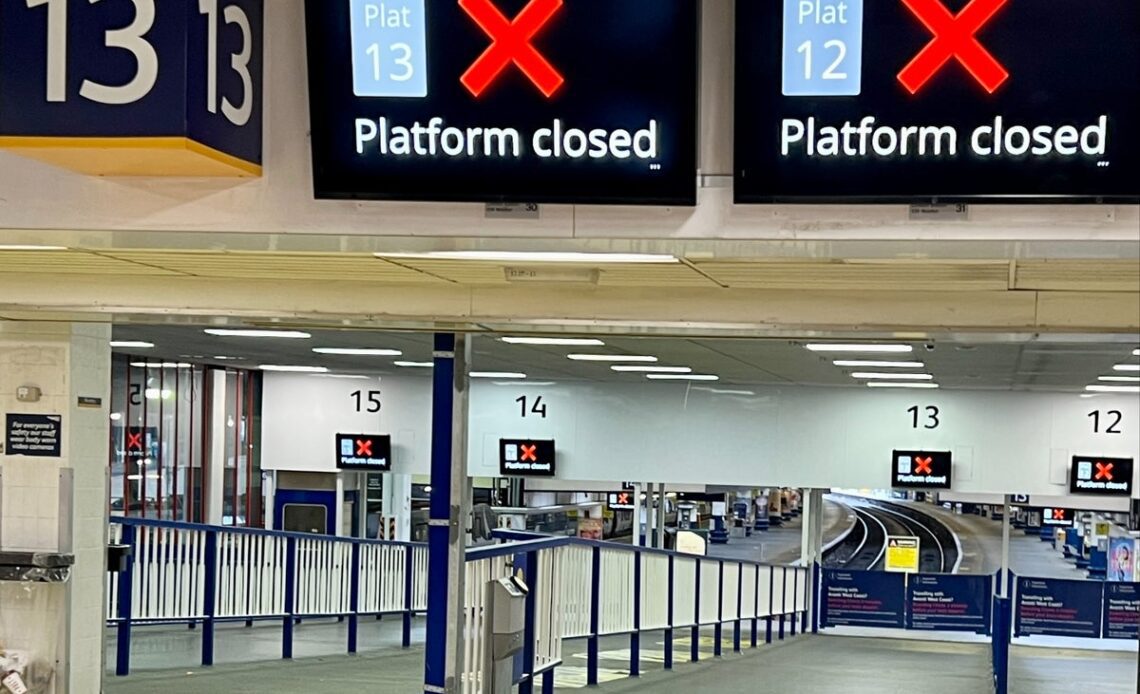The first national rail strikes since the 1980s began 15 months ago.
The initial walk-out, by members of the RMT union, was on 21 June 2022. The following month, train drivers belonging to Aslef began a separate series of stoppages.
Since then, around half a million trains have been cancelled and more than 100 million journeys scuppered by strikes and overtime bans.
With no apparent progress in negotiations, further industrial action is planned from 30 September – when Aslef members will walk out for the 13th time.
On the employers’ side: 14 English train operators contracted by the government to run services, represented by the Rail Delivery Group. Any eventual solution must be signed off by ministers.
The great divide is this: both unions demand no-strings increases that take into account the high level of inflation. They say they are prepared to discuss reforms, but these must be negotiated separately – with any changes accompanied by commensurate pay boosts.
Train operators and ministers insist modernisation is essential following the collapse of rail revenue. They say taxpayers are pumping an extra £10 million per day into keeping the railways running, on top of the usual billions in annual subsidies. The only way to award even a modest increase, the employers’ side maintains, is to fund it from efficiency savings.
What’s on offer?
No apparent progress has been made since April, when the Rail Delivery Group made offers that were roundly rejected by the unions.
Offer to RMT: 5 per cent increase for year one, payable once the RMT holds a referendum endorsing the deal. The union and its members would need to sign up to the principle of reform and end the national dispute.
Stage two: Union negotiates with individual train operating Companies (TOCs) to agree on necessary changes, with a 4 per cent pay increase would be paid for year two.
Offer to Aslef: Pay rise over two years of around 8 per cent “which would take average driver salaries from £60,000 to £65,000 for a four-day week”.
The first award is is contingent on a wide range of changes, including accelerating driver training and learning of new routes. Year two would be negotiated individually with train operators, but with the presumption that Sunday (nearly) becomes part of the working week. The exact wording: “Drivers who are rostered to work a Sunday shift are…
Click Here to Read the Full Original Article at The Independent Travel…
